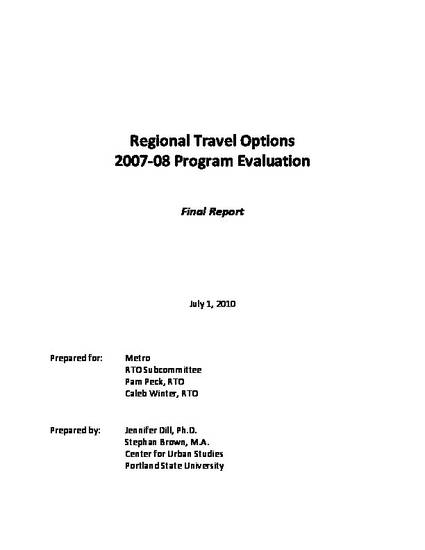
- Transportation -- Oregon -- Portland Metropolitan Area -- Planning,
- Local transit -- Oregon -- Planning,
- Transportation -- Environmental aspects
To help implement the Growth Concept, Metro’s Regional Travel Options (RTO) Program works to increase awareness of non-SOV alternatives and increase the provision of those alternatives. The program complements other strategies, including land use policies and infrastructure investment. The most comprehensive data available for this evaluation come from commute surveys of employees at work sites that participate in outreach programs offered by TriMet. All of the RTO evaluations have used these data as a benchmark for overall progress, though the data only captures commute travel. The 2008 data reflect the commute patterns of about 120,000 employees commuting to 549 worksites. The long-term trend is positive, with the share of work trips made by modes other than single-occupant vehicles (SOVs) generally increasing since 1996 Figure 3. However, the data for 2007 and 2008 show a decline since 2006 in the share of work trips made on transit. Increases in bicycling and walking, compressed work weeks, and telecommuting helped offset that decline. The share of trips made in carpools and vanpools has remained about the same for the past four years, and is still lower than 1996.

Report prepared for: Metro RTO Subcommittee